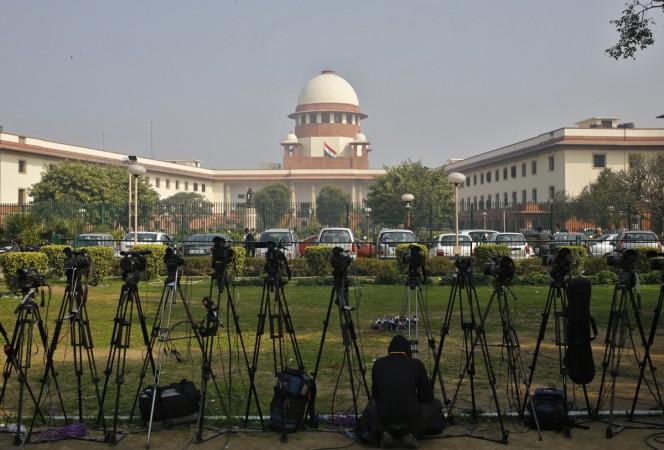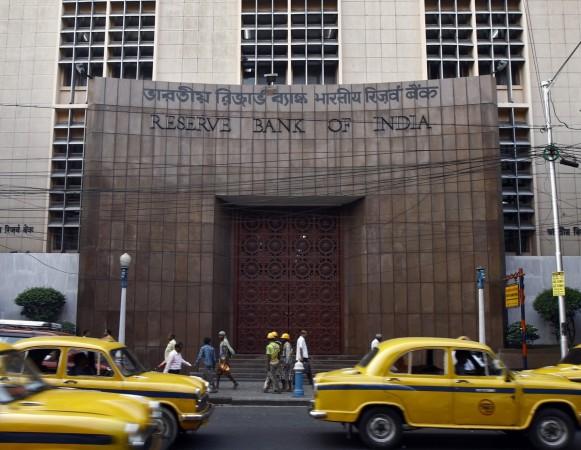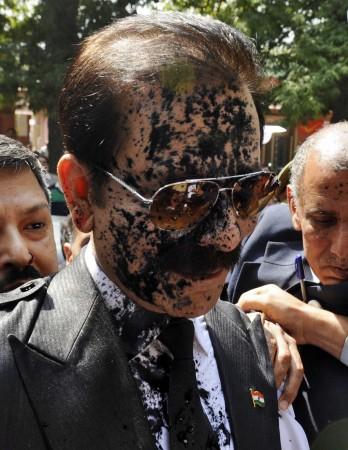Sahara India suffered a suffered a setback on Friday when the Reserve Bank of India (RBI) moved the Supreme Court to stop one of its group firms from selling assets to raise funds for its chief Subrata Roy's release from jail.
The RBI filed an application in the apex court, seeking modification of the court's June 2014 order that allowed Sahara's group companies to sell assets to pay the bail amount of ₹ 10,000 crore to secure Roy's release.
The RBI sought to implead itself as a party in the ongoing SEBI-Sahara case and said that group company Sahara India Financial Corporation Ltd (SIFCL) is a residuary non-banking financial firm and therefore the bank has regulatory control over it, PTI reported.

RBI Plea
The RBI plea read "...this court may be pleased to modify the order dated June 4, 2014 and pass an order restraining the respondents/non applicants including the company from utilising any of the assets of SIFCL including the securities, which are maintained by the company under paragraph 6 of the RNBC Directions for the purpose of paying into SEBI-Sahara Refund Account".
The RBI said its worries stemmed from annual inspections conducted under the RBI Act that pointed out that SIFCL was accepting deposits in disregard to prudential norms and that the bank's directons were being violated."
The bank also said that it wanted to ensure that SIFCL's funds are used for repaying depositors and not to secure Roy's release, taking advantage citing the court's June 2014 order.
It also cited instances when SIFCL sold securities and deposit the proceedings in bank accounts without the RBI's prior approval in terms of RNBC Directions 1987. This, the bank, said, was neither benefitting SIFCL's depositors nor complying with the apex court's June order.
"It has also been learnt that the company has sold securities amounting to ₹524.98 crore from the Directed Investments maintained in terms of RNBC Directions...The auditors have stated that though the sale of securities was purportedly for repayment to depositors of the company, however, a majority of the amount, i.e. ₹484.67 crores has been transferred to the account of its various branches. Thus, the funds have not been utilised for repayment to depositors or crediting to SEBI-Sahara Account as required in terms of the order of this court," the RBI said in its application.
The bank also sought a direction by the court to SIFCL to disclose its "assets and aggregate liability to depositors of the company as on December 31, 2014."

Securities sale by SIFCL
"The statutory auditors of the company (SIFCL) had said that it has sold securities from the Directed Investments maintained in terms of paragraph 6(1)(b) of Residuary Non-Banking Financial Company Direction 1987" and transfered an amount of Rs 94.85 crore to the SEBI-Sahara Account during June 2014 subsequent to the SC order of June 4," the RBI plea said.
The company was said to be using its assets and securities held for the purpose of complying with the apex court's order against other group companies and their directors, according to the RBI.

On 9 January 2015, the Supreme Court allowed Sahara Group to proceed with its proposed transaction, subject to approval of the RBI towards funds transfer to India from the US to meet the bail conditions and to also repay more than ₹20,000 crore with interest to depositors.














